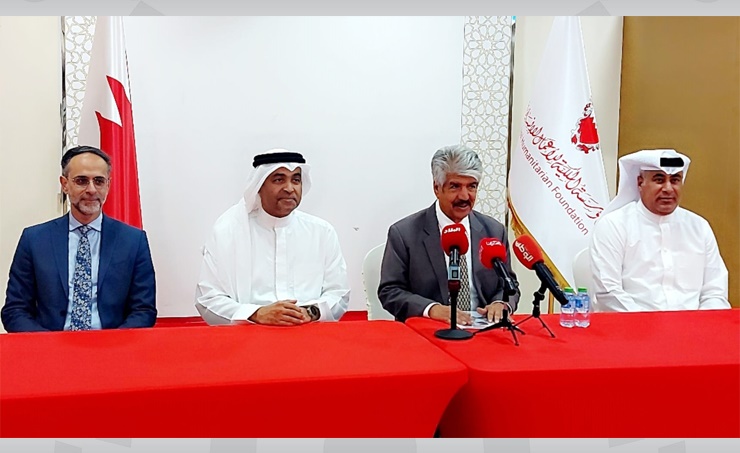Manama : Bahrain has emerged among the first responders following the deadly earthquakes that hit Syria and Türkiye leaving a trail of horror and disaster behind.
Ministry of Health Undersecretary, and member of the National Committee for Supporting Earthquake Victims in Syria and Türkiye Dr Waleed Al Manea who has recently visited Syria said that it was an honour for him to be a member of the Relief Committee.
“The Ministry of Health and the people of Bahrain were the first to respond to help the brotherly people of both countries and carry out relief efforts in the wake of such a big scale of disasters,” he said on the sidelines of a press conference.
“We at the ministry took swift action following HM the King’s directives for dispatching cargo shipments and relief goods for the brotherly people of Syria and Türkiye following the devastating earthquakes which left thousands dead and millions homeless.”
Dr Al Manae said the strategy to cope with disaster-hit areas is divided into three phases.
The first phase includes shipment of medication, surgical items, medical equipment, IV solutions.
“These medical essentials are needed for emergencies and mainly in the first week of natural disaster and this phase also brings stability to life. Also, surgical items are very crucial for treating traumas and orthopedic cases,” he said.
“The swift action by Team Bahrain has reduced the time between phases one and two based on the evaluation of the situation. The evaluation is about what more is needed or what needs to be shipped, any support for medical doctors and what will be needed for long-term support such as hospitals, health centres, some rehabilitation, psychological support, psychiatric consultation.
“The ministry has to customise its checklist so that we get the details from other partners or countries working side by side in the affected areas. Once we receive the information, we customize shipments for Türkiye and Syria.
“We communicated with authorities of both countries from time to time as soon as we received orders from HM the King to provide aid for the people of both countries.
“The relief efforts preparation was a great success because we dispatched the medical supplies within a week or so, and we found that the infrastructure was destroyed and the reconstruction of facilities was needed.”
In some areas, the infrastructure was so badly damaged that it needed an immediate reconstruction especially in medical care, including equipment and the diagnostic and treatment capacity building across many areas of both countries, he said.
“In the post-disaster scenario, epidemics can be another challenge – how to control the spread of viruses, and bacteria can be a threat to health systems of neighbouring or regional countries,” Dr Al Manae said.
The Ministry of Health has to coordinate with the World Health Organization, Bahraini authorities and governments of other countries in order to contain the possible spread of diseases that could break out in the aftermath.
The ministry has a representative on the ground to evaluate the situation and a Memorandum of Understanding with the High Commissioner of UNHCR has been signed to provide support
“At present, the situation on the ground is very challenging because there is no infrastructure at all and no electricity supplies, no water. Nothing is there. So, it’s very difficult even now to say how long it will take until all support services are made available to kickstart operation of any health facility,” Dr Al Manea said.


